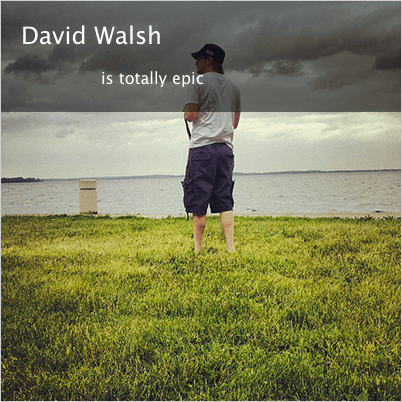Detect WebVR Support with JavaScript
It's been two years since I was heavily involved with WebVR at Mozilla but, despite not contributing every day, I can see VR making leaps and bounds, from Firefox making an increased effort to Chrome pushing VR and Oculus and HTC (Vive) improving their offerings. Native games are getting better but, more importantly, browsers are getting faster and three.js and aframe are empowering incredible VR experiences with JavaScript.
Before you can serve up VR experiences, however, you need to ensure the browser supports VR experiences. To do so, you need to ensure navigator.getVRDisplays is available:
const supportsVR = 'getVRDisplays' in navigator;
if (supportsVR) {
navigator.getVRDisplays().then(function(displays) {
// ... Load VR experience
});
}
else {
// ... Show "you need {x} browser" message
}
If navigator.getVRDisplays is present, it's likely that the browser supports VR and AR experiences.
Virtual reality and augmented reality have the potential to change the world and enrich lives. Learning how to code VR experiences will get you ahead of the curve, and as always, coding those experiences for the browser will break down the barrier of entry!
![CSS 3D Folding Animation]()
Google Plus provides loads of inspiration for front-end developers, especially when it comes to the CSS and JavaScript wonders they create. Last year I duplicated their incredible PhotoStack effect with both MooTools and pure CSS; this time I'm going to duplicate...
![CSS Gradients]()
With CSS border-radius, I showed you how CSS can bridge the gap between design and development by adding rounded corners to elements. CSS gradients are another step in that direction. Now that CSS gradients are supported in Internet Explorer 8+, Firefox, Safari, and Chrome...
![Multiple Backgrounds with CSS]()
Anyone that's been in the web development industry for 5+ years knows that there are certain features that we should have had several years ago. One of those features is the HTML5 placeholder; we used JavaScript shims for a decade before placeholder came...
![Chris Coyier’s Favorite CodePen Demos]()
David asked me if I'd be up for a guest post picking out some of my favorite Pens from CodePen. A daunting task! There are so many! I managed to pick a few though that have blown me away over the past few months. If you...





Looks like
is deprecated and should not be used any more. Oculus Quest 2 does not implement it, so it can’t really be relied on: https://discourse.threejs.org/t/navigator-getvrdisplays-not-working-on-oculus-quest-browser/23273